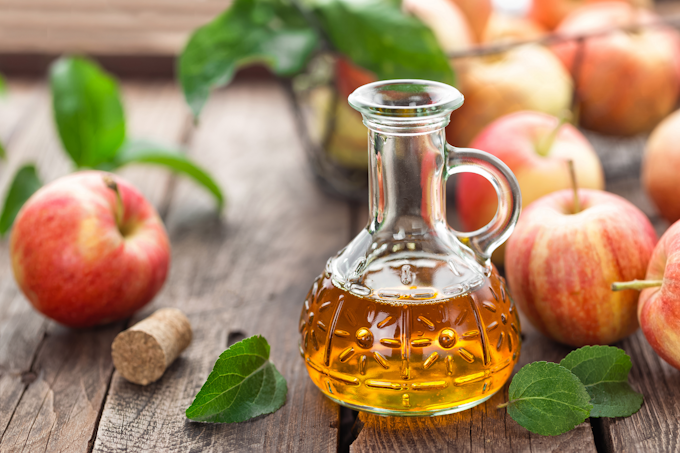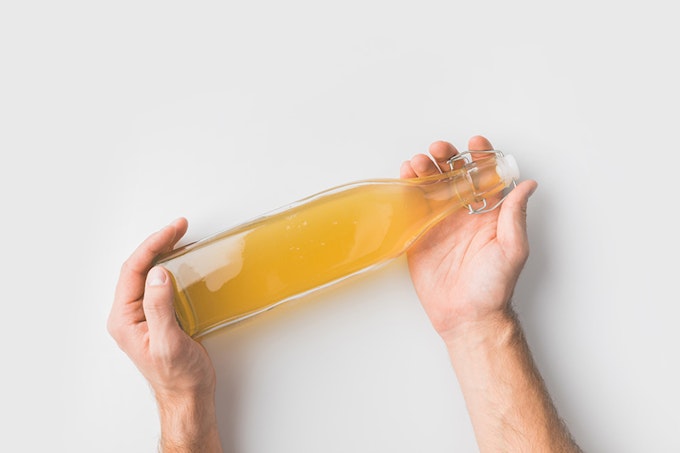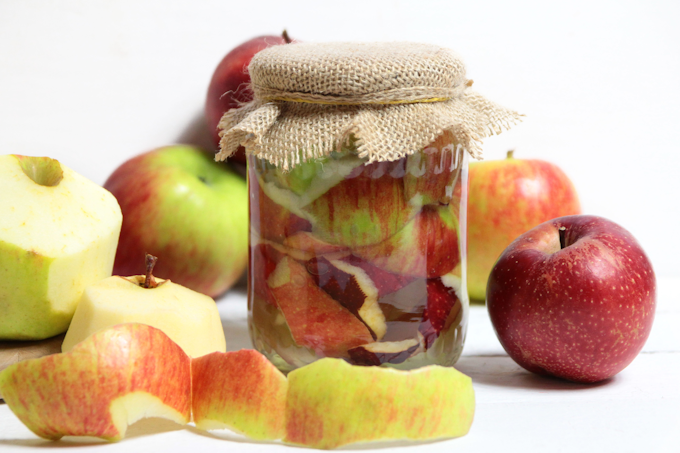Does apple cider vinegar break a fast?

Keto vs. Non-Keto
Quickly compare keto-friendly foods with non-keto options for easy reference
Use this wallet card to make informed food choices while shopping or dining out
Identify fake keto foods and ingredients that you should avoid
Simplify decision-making with clear, practical guidelines

Keto vs. Non-Keto
Quickly compare keto-friendly foods with non-keto options for easy reference
Use this wallet card to make informed food choices while shopping or dining out
Identify fake keto foods and ingredients that you should avoid
Simplify decision-making with clear, practical guidelines

Keto vs. Non-Keto
Quickly compare keto-friendly foods with non-keto options for easy reference
Use this wallet card to make informed food choices while shopping or dining out
Identify fake keto foods and ingredients that you should avoid
Simplify decision-making with clear, practical guidelines

Keto vs. Non-Keto
Quickly compare keto-friendly foods with non-keto options for easy reference
Use this wallet card to make informed food choices while shopping or dining out
Identify fake keto foods and ingredients that you should avoid
Simplify decision-making with clear, practical guidelines

Keto vs. Non-Keto
Quickly compare keto-friendly foods with non-keto options for easy reference
Use this wallet card to make informed food choices while shopping or dining out
Identify fake keto foods and ingredients that you should avoid
Simplify decision-making with clear, practical guidelines

Keto vs. Non-Keto
Quickly compare keto-friendly foods with non-keto options for easy reference
Use this wallet card to make informed food choices while shopping or dining out
Identify fake keto foods and ingredients that you should avoid
Simplify decision-making with clear, practical guidelines

Keto vs. Non-Keto
Quickly compare keto-friendly foods with non-keto options for easy reference
Use this wallet card to make informed food choices while shopping or dining out
Identify fake keto foods and ingredients that you should avoid
Simplify decision-making with clear, practical guidelines

Keto vs. Non-Keto
Quickly compare keto-friendly foods with non-keto options for easy reference
Use this wallet card to make informed food choices while shopping or dining out
Identify fake keto foods and ingredients that you should avoid
Simplify decision-making with clear, practical guidelines

Keto vs. Non-Keto
Quickly compare keto-friendly foods with non-keto options for easy reference
Use this wallet card to make informed food choices while shopping or dining out
Identify fake keto foods and ingredients that you should avoid
Simplify decision-making with clear, practical guidelines

Keto vs. Non-Keto
Quickly compare keto-friendly foods with non-keto options for easy reference
Use this wallet card to make informed food choices while shopping or dining out
Identify fake keto foods and ingredients that you should avoid
Simplify decision-making with clear, practical guidelines

Keto vs. Non-Keto
Quickly compare keto-friendly foods with non-keto options for easy reference
Use this wallet card to make informed food choices while shopping or dining out
Identify fake keto foods and ingredients that you should avoid
Simplify decision-making with clear, practical guidelines

Keto vs. Non-Keto
Quickly compare keto-friendly foods with non-keto options for easy reference
Use this wallet card to make informed food choices while shopping or dining out
Identify fake keto foods and ingredients that you should avoid
Simplify decision-making with clear, practical guidelines

Keto vs. Non-Keto
Quickly compare keto-friendly foods with non-keto options for easy reference
Use this wallet card to make informed food choices while shopping or dining out
Identify fake keto foods and ingredients that you should avoid
Simplify decision-making with clear, practical guidelines

Keto vs. Non-Keto
Quickly compare keto-friendly foods with non-keto options for easy reference
Use this wallet card to make informed food choices while shopping or dining out
Identify fake keto foods and ingredients that you should avoid
Simplify decision-making with clear, practical guidelines

Keto vs. Non-Keto
Quickly compare keto-friendly foods with non-keto options for easy reference
Use this wallet card to make informed food choices while shopping or dining out
Identify fake keto foods and ingredients that you should avoid
Simplify decision-making with clear, practical guidelines

Keto vs. Non-Keto
Quickly compare keto-friendly foods with non-keto options for easy reference
Use this wallet card to make informed food choices while shopping or dining out
Identify fake keto foods and ingredients that you should avoid
Simplify decision-making with clear, practical guidelines

Keto vs. Non-Keto
Quickly compare keto-friendly foods with non-keto options for easy reference
Use this wallet card to make informed food choices while shopping or dining out
Identify fake keto foods and ingredients that you should avoid
Simplify decision-making with clear, practical guidelines

Beginner’s Guide to Healthy Keto & Intermittent Fasting
Receive a step-by-step guide to starting Healthy Keto® and intermittent fasting
Learn about foundational principles and best practices for beginners
Get detailed visual guidance on portion sizes and meal composition
Discover how to set achievable goals and monitor your progress
Find practical tips for overcoming common challenges and staying motivated

Beginner’s Guide to Healthy Keto & Intermittent Fasting
Receive a step-by-step guide to starting Healthy Keto® and intermittent fasting
Learn about foundational principles and best practices for beginners
Get detailed visual guidance on portion sizes and meal composition
Discover how to set achievable goals and monitor your progress
Find practical tips for overcoming common challenges and staying motivated

Beginner’s Guide to Healthy Keto & Intermittent Fasting
Receive a step-by-step guide to starting Healthy Keto® and intermittent fasting
Learn about foundational principles and best practices for beginners
Get detailed visual guidance on portion sizes and meal composition
Discover how to set achievable goals and monitor your progress
Find practical tips for overcoming common challenges and staying motivated

Beginner’s Guide to Healthy Keto & Intermittent Fasting
Receive a step-by-step guide to starting Healthy Keto® and intermittent fasting
Learn about foundational principles and best practices for beginners
Get detailed visual guidance on portion sizes and meal composition
Discover how to set achievable goals and monitor your progress
Find practical tips for overcoming common challenges and staying motivated

Beginner’s Guide to Healthy Keto & Intermittent Fasting
Receive a step-by-step guide to starting Healthy Keto® and intermittent fasting
Learn about foundational principles and best practices for beginners
Get detailed visual guidance on portion sizes and meal composition
Discover how to set achievable goals and monitor your progress
Find practical tips for overcoming common challenges and staying motivated

Beginner’s Guide to Healthy Keto & Intermittent Fasting
Receive a step-by-step guide to starting Healthy Keto® and intermittent fasting
Learn about foundational principles and best practices for beginners
Get detailed visual guidance on portion sizes and meal composition
Discover how to set achievable goals and monitor your progress
Find practical tips for overcoming common challenges and staying motivated

Beginner’s Guide to Healthy Keto & Intermittent Fasting
Receive a step-by-step guide to starting Healthy Keto® and intermittent fasting
Learn about foundational principles and best practices for beginners
Get detailed visual guidance on portion sizes and meal composition
Discover how to set achievable goals and monitor your progress
Find practical tips for overcoming common challenges and staying motivated

Beginner’s Guide to Healthy Keto & Intermittent Fasting
Receive a step-by-step guide to starting Healthy Keto® and intermittent fasting
Learn about foundational principles and best practices for beginners
Get detailed visual guidance on portion sizes and meal composition
Discover how to set achievable goals and monitor your progress
Find practical tips for overcoming common challenges and staying motivated

Beginner’s Guide to Healthy Keto & Intermittent Fasting
Receive a step-by-step guide to starting Healthy Keto® and intermittent fasting
Learn about foundational principles and best practices for beginners
Get detailed visual guidance on portion sizes and meal composition
Discover how to set achievable goals and monitor your progress
Find practical tips for overcoming common challenges and staying motivated

Beginner’s Guide to Healthy Keto & Intermittent Fasting
Receive a step-by-step guide to starting Healthy Keto® and intermittent fasting
Learn about foundational principles and best practices for beginners
Get detailed visual guidance on portion sizes and meal composition
Discover how to set achievable goals and monitor your progress
Find practical tips for overcoming common challenges and staying motivated

Beginner’s Guide to Healthy Keto & Intermittent Fasting
Receive a step-by-step guide to starting Healthy Keto® and intermittent fasting
Learn about foundational principles and best practices for beginners
Get detailed visual guidance on portion sizes and meal composition
Discover how to set achievable goals and monitor your progress
Find practical tips for overcoming common challenges and staying motivated

Beginner’s Guide to Healthy Keto & Intermittent Fasting
Receive a step-by-step guide to starting Healthy Keto® and intermittent fasting
Learn about foundational principles and best practices for beginners
Get detailed visual guidance on portion sizes and meal composition
Discover how to set achievable goals and monitor your progress
Find practical tips for overcoming common challenges and staying motivated

Beginner’s Guide to Healthy Keto & Intermittent Fasting
Receive a step-by-step guide to starting Healthy Keto® and intermittent fasting
Learn about foundational principles and best practices for beginners
Get detailed visual guidance on portion sizes and meal composition
Discover how to set achievable goals and monitor your progress
Find practical tips for overcoming common challenges and staying motivated

Beginner’s Guide to Healthy Keto & Intermittent Fasting
Receive a step-by-step guide to starting Healthy Keto® and intermittent fasting
Learn about foundational principles and best practices for beginners
Get detailed visual guidance on portion sizes and meal composition
Discover how to set achievable goals and monitor your progress
Find practical tips for overcoming common challenges and staying motivated

Beginner’s Guide to Healthy Keto & Intermittent Fasting
Receive a step-by-step guide to starting Healthy Keto® and intermittent fasting
Learn about foundational principles and best practices for beginners
Get detailed visual guidance on portion sizes and meal composition
Discover how to set achievable goals and monitor your progress
Find practical tips for overcoming common challenges and staying motivated

Beginner’s Guide to Healthy Keto & Intermittent Fasting
Receive a step-by-step guide to starting Healthy Keto® and intermittent fasting
Learn about foundational principles and best practices for beginners
Get detailed visual guidance on portion sizes and meal composition
Discover how to set achievable goals and monitor your progress
Find practical tips for overcoming common challenges and staying motivated

Beginner’s Guide to Healthy Keto & Intermittent Fasting
Receive a step-by-step guide to starting Healthy Keto® and intermittent fasting
Learn about foundational principles and best practices for beginners
Get detailed visual guidance on portion sizes and meal composition
Discover how to set achievable goals and monitor your progress
Find practical tips for overcoming common challenges and staying motivated
Is it safe to have apple cider vinegar while on an intermittent fasting plan?

I talk a lot about the benefits and uses of apple cider vinegar on my YouTube channel, and many viewers have expressed their curiosity about apple cider vinegar while fasting.
The short answer is this: Apple cider vinegar will not break your fast because it contains virtually zero carbohydrates or calories.
In this article, I want to take a deep dive into why apple cider vinegar is safe while fasting and how it can even enhance your intermittent fasting plan. I’ll also give you an overview of the top benefits, along with an easy ACV recipe you can make at home!
What is apple cider vinegar?
Apple cider vinegar (ACV) is a potent vinegar made by fermenting apple cider (and oftentimes apple scraps) it's also high in acetic acid. You can drink it, cook with it, use it in salad dressings, and even use it topically.
During the fermentation process, bacteria in the apple cider break down carbs, sugar, and alcohol and produce acetic acid as a byproduct. Most apple cider vinegar health benefits are because of this powerful acid, and it’s also responsible for its sour, pungent flavor.
ACV has a variety of uses—it may help with digestion, blood sugar, weight loss, and so much more. We’ll talk more about the benefits of apple cider vinegar further down in the article. (source)
How many carbs are in apple cider vinegar?
If you’re on a Healthy Keto and intermittent fasting (IF) plan, you know the importance of avoiding high-carb foods—including apples and juice. If apple cider is loaded with carbs, why do I recommend ACV on keto and IF?
Apple cider vinegar contains just 0.01 grams of carbohydrates per tablespoon. By the time fermentation is complete, nearly all carbs in the apple cider are converted into acetic acid.
The small number of carbs you consume when having ACV are insignificant, so they won’t produce an insulin response. See how the carbs in apple cider vinegar compare to other kinds of vinegar.
Carbohydrates per tablespoon:
ACV: 0.01 g
Balsamic vinegar: 3 g
Rice vinegar: 6 g
Balsamic and rice vinegar have 300 and 600 times more carbohydrates than AVC, respectively.
Small amounts of high-carb vinegar—a splash on your salad or a tablespoon in a savory recipe—shouldn’t have an effect on your blood sugar levels. But be careful and check nutritional labels before you make a purchase. Certain balsamic vinegars can be very high in sugar.

Does apple cider vinegar break your fast?
When you are doing intermittent fasting, it can be difficult to know what will break your fast and what won't.
The most important factor in maintaining your fast is keeping your insulin level low. Any spike in insulin will immediately break your fast until it lowers again. Sugar and other carbohydrates trigger insulin the most. However, protein and nearly all other foods will trigger insulin to some extent.
Apple cider vinegar will not break your fast because it only contains 0.01 g of carbs, which isn’t significant enough to spike your insulin level—especially when you drink it slowly in a glass of water. In fact, ACV in water is one of the best drinks to have while fasting.
If you want to better understand what will break the fast and what won't, check out this blog and video. I explain what it means to break a fast and list what you can and can't consume during your fasting window. Does ginger break a fast is a common question I get asked all the time so I've answered the question in depth and provided some helpful solutions.
How much apple cider vinegar should you have while fasting?
You can have one to two tablespoons of ACV diluted in water while doing intermittent fasting. If you’re doing an apple cider vinegar cleanse, you can have four tablespoons of ACV daily for one week.
Consuming too much vinegar may make your body too acidic, leading to acidosis. If you happen to take too much, you can take some alkalizing minerals to rebalance your pH. Magnesium and potassium are two of the most powerful alkalizing minerals.
I don’t recommend apple cider vinegar during extended fasting because your body will already be highly acidic due to increased ketones. You should also be cautious about having too much while water fasting if your fast is longer than one day. Instead, stick to water, coffee, and tea while doing prolonged fasting and water fasting.
Learn more about the side effects of too much apple cider vinegar here.
When to drink apple cider vinegar while intermittent fasting
The best time to have apple cider vinegar depends on your preference. Here are the benefits of having ACV at different times throughout the day.
ACV in the morning - Supports weight loss and decreases hunger
ACV with meals - Boosts digestion and reduces indigestion
ACV at night - Promotes normal blood sugar levels and quality sleep
Experiment with having ACV at different times throughout the day and see what works best for you.
Learn more about when to drink ACV while intermittent fasting here.

Does apple cider vinegar burn fat?
The acetic acid in ACV indirectly enhances the benefits of intermittent fasting for weight loss.
It’s nearly impossible to lose weight while your insulin level is high. Insulin acts as a wall that blocks your metabolism from tapping into stored body fat. Lowering your carbs (keto) and extending the fasting period between meals (intermittent fasting) helps normalize blood glucose and minimize insulin stimulation. (source article)
The acetic acid in ACV increases glucose uptake in muscle tissue, normalizing your blood glucose. With less glucose in your bloodstream, your body doesn’t need as much insulin.
This does two important things—it restores your body’s ability to tap into stored body fat, and it reduces hunger and cravings, making it easier to resist unhealthy foods.
Having apple cider vinegar daily may help:
Decrease hunger
Reduce cravings while fasting
Increase your energy
Boost weight loss
Learn more about the benefits of apple cider vinegar for weight loss.
Why should you take apple cider vinegar before bed?
The liver releases glucose at night to help maintain normal blood sugar levels while you sleep. However, insulin resistance can throw off your blood sugar balance because your cells are no longer able to efficiently uptake glucose and remove it from your bloodstream.
If you have insulin resistance, you will often wake up with abnormally high blood sugar levels. This is known as the dawn effect.
The acetic acid in apple cider vinegar is anti-glycemic, meaning it helps reduce and normalize high blood sugar levels. Taking apple cider vinegar before bed may help offset the dawn effect and help you maintain normal blood sugar levels in the morning.
A cup of water or hot tea with apple cider vinegar at night may help you avoid the dawn effect. Capsules are also an excellent option for those that don’t like the taste of ACV or can’t have drinks before bed.
Learn more about the dawn effect and the importance of taking apple cider vinegar before bed in this YouTube video.

The benefits of drinking apple cider vinegar and lemon juice in the morning
Having a glass of water with apple cider vinegar in the morning is a great way to start off your day. The natural acetic acid and nutrients in ACV will help normalize your gut pH, reduce hunger, support your microbiome, promote healthy digestion, and normalize your blood sugar.
How to drink apple cider vinegar in the morning
Having apple cider vinegar in the morning will not break your fast, and it’s a great way to suppress your appetite and extend your fast until later in the day.
You can have the tonic in the morning diluted with a glass of water. I prefer to add lemon juice for the additional health benefits. If you find the taste too unpleasant, you can try ACV capsules instead.
Take a look at the ACV and lemon water recipe I use every morning.
Apple cider vinegar and lemon water recipe
Ingredients
16 oz water
2 tsp apple cider vinegar
2 tsp lemon juice
1 small pinch sea salt
Directions
1. Pour all ingredients into a cup or bottle.
2. Stir or shake until fully incorporated.
3. Enjoy!
Tip: Add some electrolyte powder for additional flavor and benefits!

More benefits of apple cider vinegar while fasting
This amazing tonic is incredible for so much more than weight loss. Here are nine health benefits of apple cider vinegar.
Aids in digestion - Adding acetic acid to the stomach can help to activate digestive enzymes that speed up your digestion.
Supports a healthy microbiome - ACV can keep your microbiome balanced by promoting friendly microbes and reducing the growth of harmful pathogens.
Boosts vitamin and mineral absorption - You need a highly acidic stomach to break down and absorb many vitamins and minerals—ACV helps promote healthy stomach acidity.
Reduces gas and bloating - Gas and bloating are signs of microbial overgrowth. ACV promotes a balanced microbiome, which can help decrease these symptoms.
Decreases acid reflux and indigestion - Too little stomach acid can reduce the digestion of nutrients, which can cause acid reflux and indigestion. Apple cider vinegar helps promote a healthy stomach pH balance.
Promotes bile release - Bile breaks down fat-soluble nutrients so your body can use them. Apple cider vinegar increases stomach acidity, which is essential for the production and release of bile.
Supports protein digestion - Acetic acid in ACV helps your digestive system break down and absorb protein.
Supports healthy blood sugars - ACV has natural anti glycemic properties that help normalize your blood sugar levels and restore insulin sensitivity.
Boosts the immune system - The benefits of ACV for the immune system are two-fold. It reduces unfriendly gut microbes and helps activate the immune system.
Learn more about the benefits of apple cider vinegar here.

Six tips for using apple cider vinegar while fasting
High-quality apple cider vinegar is worth the investment
Always choose a raw, unpasteurized, organic vinegar. This ensures that it will contain active enzymes, which are highly beneficial for your gut health. Organic ACV will also help you avoid harmful toxins like pesticides and herbicides. Bragg's is one of the best apple cider vinegar brands to use—and it’s easy to find at most grocery stores.
Always dilute your ACV
Dilution is important when consuming ACV. Pure ACV can cause damage to your esophagus and tooth enamel. Have no more than two tablespoons in 16 ounces of water. You can also dilute ACV in tea or smoothies.
Add lemon juice
Lemon juice can help enhance the flavor of your apple cider vinegar drink and provide additional health benefits.
Use a straw
Apple cider vinegar (especially when undiluted) may cause damage to the enamel of your teeth, making your teeth more susceptible to decay. You can use a straw to help reduce the amount of it that comes in contact with your teeth. Rinsing your mouth with water after having ACV can also help protect your enamel.
Add apple cider vinegar to recipes
ACV makes excellent dressings and sauces. Try it on a salad, use it to pickle vegetables, or add it to one of our delicious keto recipes.
Try apple cider vinegar capsules
Some people can’t handle the taste of ACV. If you prefer not to drink it or use it on salad, try taking ACV capsules instead. Apple cider vinegar capsules are flavorless and easy to take with you on the go.
How to do an apple cider vinegar cleanse
A cleanse can help kickstart weight loss and shrink your belly fat. You can get started on your own ACV cleanse today—here’s how!
ACV cleanse drink ingredients
1 whole lemon
1 oz apple cider vinegar
12 oz water
1 serving electrolyte powder (optional for flavor and added benefits)
Directions
Cut lemon into quarters.
Add all ingredients to a blender (including lemon peel).
Blend until smooth and serve!
Have this cleansing drink twice a day for one week.
How to make apple cider vinegar at home
Although it can take several weeks to complete the fermentation process, making apple cider vinegar is a relatively simple process. It involves just three ingredients: water, apples, and sugar. The sugar is to help with the fermentation process and won’t be present in the end product, so don’t worry about breaking your fast!
Making this recipe at home will give you full control over every ingredient, so you can make sure your ACV is quality, organic, and free of toxins. It’s also a fun and cost-effective way to enjoy the benefits of apple cider vinegar. Give it a try!
Apple cider vinegar recipe

Per serving: 0 calories, 0 g protein, 0.01 g carbohydrates, 0.01 g net carbohydrates, 0 g fat
Homemade apple cider vinegar
Total time: 2+ weeks
Makes: 32 servings
Ingredients
3 medium organic apples, washed, peeled, and cored
2 cups filtered or purified water
2 Tbsp raw organic sugar
Directions
1. Place apple cores and peels in a quart-sized jar and cover with water (more than 2 cups may be needed).
2. Add sugar and stir until dissolved.
3. Cover the jar with a cheesecloth or coffee filter and screw on outer ring.
4. Let the jar sit in a dark place at room temperature for 12 days, stirring the mixture once daily.
5. Remove cores and peels by straining the mixture, then cover again with a cheesecloth or coffee filter.
6. Let the mixture sit, tasting it every week until it has reached your desired acidity.
7. Pour the apple cider vinegar into a sealed bottle or jar to stop fermentation.
9. Add it to salads, drinks, or sauces, and enjoy!
Note: You can keep your homemade apple cider vinegar in the fridge for one year.
Key takeaways
Apple cider vinegar is safe to have while doing intermittent and prolonged fasting. It’s low in carbohydrates, so it won’t break your fast or stimulate insulin. In fact, adding ACV to your fasting program can support weight loss and help you fast for longer.
ACV has many incredible health benefits. It can help support your immune system, normalize your blood sugar, reduce cravings, decrease indigestion, and balance your microbiome.
Is this incredible tonic a part of your daily routine? Share your experiences down below in the comments section!
FAQs
1. How do I drink apple cider vinegar in the morning?
Dilute two tablespoons of ACV in 12 ounces of water. Apple cider vinegar is great for reducing cravings and extending your fast.
2. Will apple cider vinegar break my fast?
No, apple cider vinegar will not break your fast. ACV contains only 0.01 grams of carbohydrates per serving, which will not affect fasting.
3. When should I take apple cider vinegar?
The time of day you take apple cider vinegar is a matter of preference. Take it in the morning to support weight loss and decrease hunger, with meals to boost digestion and reduce indigestion, or at night to promote normal blood sugar and quality sleep.
4. Which apple cider vinegar is good for weight loss?
Always use an organic vinegar to avoid harmful pesticides, herbicides, and other toxins. Bragg’s ACV is easy to find and widely available.
5. Which apple cider vinegar is good for acid reflux?
Any high-quality apple cider vinegar will help with acid reflux. You can also use ACV capsules before each meal to reduce acid reflux and indigestion.
6. Will lemon water break my fast?
No, lemon water will not break your fast unless you add sugar. Add lemon to your ACV water for additional benefits.
7. Can you drink apple cider vinegar straight?
No, it is highly acidic and may burn your esophagus and destroy the enamel of your teeth. Always dilute ACV. Add two tablespoons of ACV to 12 ounces of water.
8. How often should you drink apple cider vinegar?
You can have apple cider vinegar all at once or split up into multiple doses per day. Limit your intake to two tablespoons daily.
9. How much apple cider vinegar should I drink a day?
Two tablespoons of apple cider vinegar a day is ideal for most people.
10. Can I have apple cider vinegar while doing intermittent fasting?
Yes! It will not interfere with your intermittent fasting plan. In fact, ACV may help you fast for longer and increase your intermittent fasting benefits.
11. Can I take apple cider vinegar while water fasting?
This depends on the length of your fast. You can have apple cider vinegar while water fasting for one day or less. Do not have ACV while fasting longer than one day. You may make your body too acidic and experience acidosis symptoms.
12. Who shouldn’t have apple cider vinegar?
Apple cider vinegar is safe for most people to consume. If you are pregnant, breastfeeding, or have pre-existing health conditions, ask your doctor. Don’t drink apple cider vinegar if you have ulcers or metabolic acidosis.
Previous blog
Dangers of an Ultra Low Fat DietTags

Popular
08/21/2024
55K views
02/23/2025
46.3K views
11/18/2024
277.5K views
03/18/2024
11/21/2022




